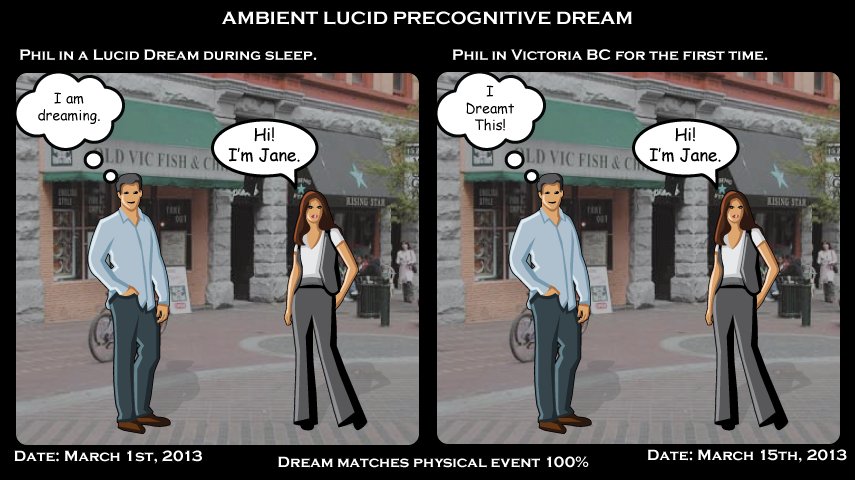Are you feeling weird and uneasy whenever you feel like you know what will happen next in a certain situation?
Or do you feel great because it seems like you're having this power to predict the future?
If yes, then you're probably experiencing precognitive experiences.
There are lots of psychological studies about dreams. One of these is "precognitive dreaming."
Precognition is a latin word 'pre' meaning, "before" and 'cognitio' meaning, "acquiring knowledge." It is a called a future sight or second sight that involves acquisition or normally acquires sense-based information.
But it is said that the existence of precognition is not accepted by the mainstream scientific community.
What is precognitive dreaming?
In the article "
Precognitive dreams" by
Rebecca Turner, are dreams that are predicted in the fure through a sixth sense. In short, to consider a truly precognitive dream with paranormal roots, we need to have unpredictable information about the future. This is why it is said that precognition is hard to prove.
Another study of it says that it is all about numbers. According to Todd Carroll, author of 'The Skeptic's Dictionary, having dreams that predicts the future is all a numbers game. We have 6.5 billion of people on this planet and each has an average of five dreams per night. Which caused to support these dreams a multiple dream themes. Like when Titanic sunk in 1912, hundreds of people came forward with reports of psychic dreams about the demise of the great ship. The Titanic was the world's largest ship on its maiden voyage and was in the headlines even before the tragedy happened. And ironically, the media had even called it
unsinkable.
Turner says, "
We all have intuitive dreams. They express our innermost hopes
and fears based on subconscious information that we may or may not be
repressing." This being said, I conclude that precognitive dreaming are just instincts. Most likely, predictions that you know that might happen.
What are the types of Precognitive Dreaming?
As I was researching, I've seen this article "
The Anatomy of a Precognitive Dream" by
Ian Wilson wherein I discovered that there are four types of precognitive dreams.
First is the Symbolic Precoagnitive Dream that abstacts the precognitive information and generally is not realized up until the actual event.

Second is the Literal Precognitive Dream is a dream from a first-person view. This type is a dream in literal detail. Like what you see and feel in the dream will also be felt in the actual situation.

Third is the 3rd Person Precognitive Dream.
This is a dream from a third-person. This can
also take on both symbolic and literal similarities but
it does not suggest that the information being observed will occur from a first-person point of view.
Lastly, the Lucid Precognitive Dream wherein a person is awake and realizes that they are dreaming. In an active lucid precognitive dream, the dreamer actively tries to engage the precognitive dream where in an ambient lucid precognitive dream, the dreamer passively observes the dream remaining within the usual dream flow.
Wilson says, "
Dreaming for the most part is a passive experience where we
project our thoughts, ideas and emotions into a virtual 3D world based
on the principles of organized thought." I agree with what he said because he has shown the facts that supports his word. It is clearly stated that dreams are our projected thoughts and emotions.






























